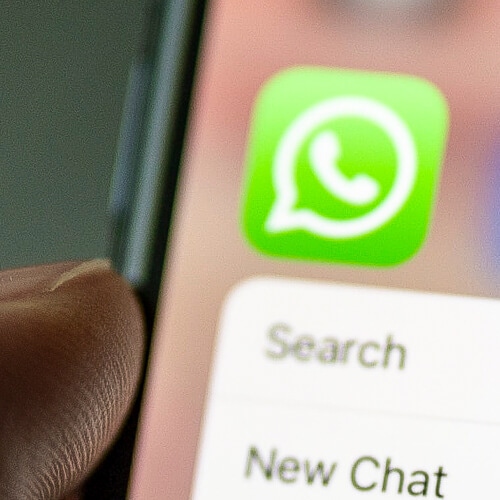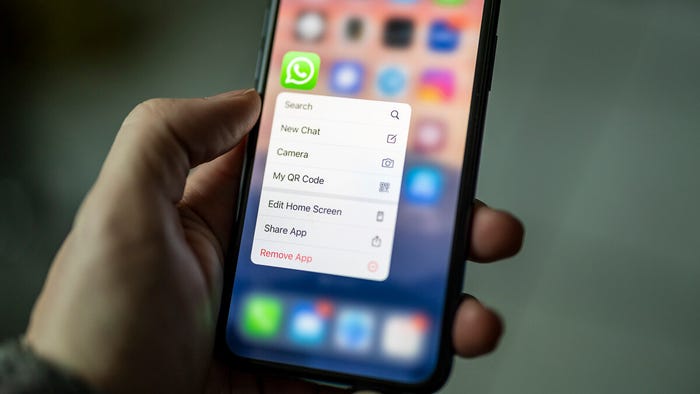WhatsApp sues Indian government over new social media rules
In an unprecedented move, messaging giant WhatsApp has filed a case against the government in the Delhi High Court to block new social media rules now in force.

In an unprecedented move, messaging giant WhatsApp has filed a lawsuit against the Indian government in the Delhi High Court, seeking to block new social media rules now in force.
WhatsApp alleges they violate the privacy rights of Indian citizens, since it will need to identify the "first originator" of information as and when authorities demand it. The company says that it will need to break its end-to-end encryption to comply with the new rules.
The new rules under the Intermediary Guidelines and Digital Media Ethics Code, introduced by the Ministry of Information Technology, say that "social media intermediaries" stand to lose protection from criminal prosecution if they fail to adhere to the new regulations.
Figure 1:  Sending a message: WhatsApp is refusing to bow to pressure from the Indian government – and has messaged them to say they'll see them in court.
Sending a message: WhatsApp is refusing to bow to pressure from the Indian government – and has messaged them to say they'll see them in court.
(Source: Dimitri Karastelev on Unsplash
They also need to appoint an Indian Compliance Officer. Social media firms would also be required to remove content within 36 hours, and set up processes for the automatic removal of pornography.
While Google and YouTube have said they will try to comply, Twitter has so far refrained from commenting. Facebook, which owns WhatsApp, has said that it needs more time to negotiate with the government on some key points.
All the social media firms have a massive following in the country, and the administration will find it tough to ban these platforms.
It is not hard to understand why WhatsApp has filed this legal suit against the Indian Government. If it breaks its end-to-end encryption – which is its biggest selling point – in one country, it might be forced to do so in other regions as well.
Growing tensions
Over the past few months, there has been increasing friction between the Indian administration and social media.
Earlier this week, the government demanded the removal of the "manipulated text" tag attached to tweets by the spokesperson of the Bharatiya Janata Party (BJP). It also asked Twitter to remove tweets it claimed misinformed the public about its handling of the second wave of the coronavirus pandemic.
In 2020, the government banned several Chinese apps, including Helo and Tiktok. However it won't be as easy to ban giants like Facebook and Twitter, mainly because of India's close ties with the US. The country needs American support to manage China's growing aggression in the region.
Want to know more about the cloud? Check out our dedicated cloud-native networks and NFV content channel here on Light Reading.
It is ironic the BJP and social media giants are at loggerheads given the two share a symbiotic relationship.
Not too long ago, the BJP used the power of social media to grow its support base in the country, leading to a massive election win in 2014.
Yet now, when the Indian government is on the receiving end of growing public criticism, it seeks to control the platforms that increasingly reflect anti-government sentiment.
The administration is trying to promote the use of Indian apps, like Koo, which is similar to Twitter, to fight the hegemony of the global giants. This is in line with its Atma Nirbhar (self-reliant) policy. However, homegrown companies lack the vibrancy and reach of global social media giants.
On the other hand, WhatsApp is almost forcing people to accept its new data-sharing rules, which allow it to share crucial user data with Facebook and other businesses. The Indian government had asked WhatsApp to withdraw them.
Related posts:
— Gagandeep Kaur, contributing editor, special to Light Reading
Read more about:
AsiaAbout the Author(s)
You May Also Like


_International_Software_Products.jpeg?width=300&auto=webp&quality=80&disable=upscale)








